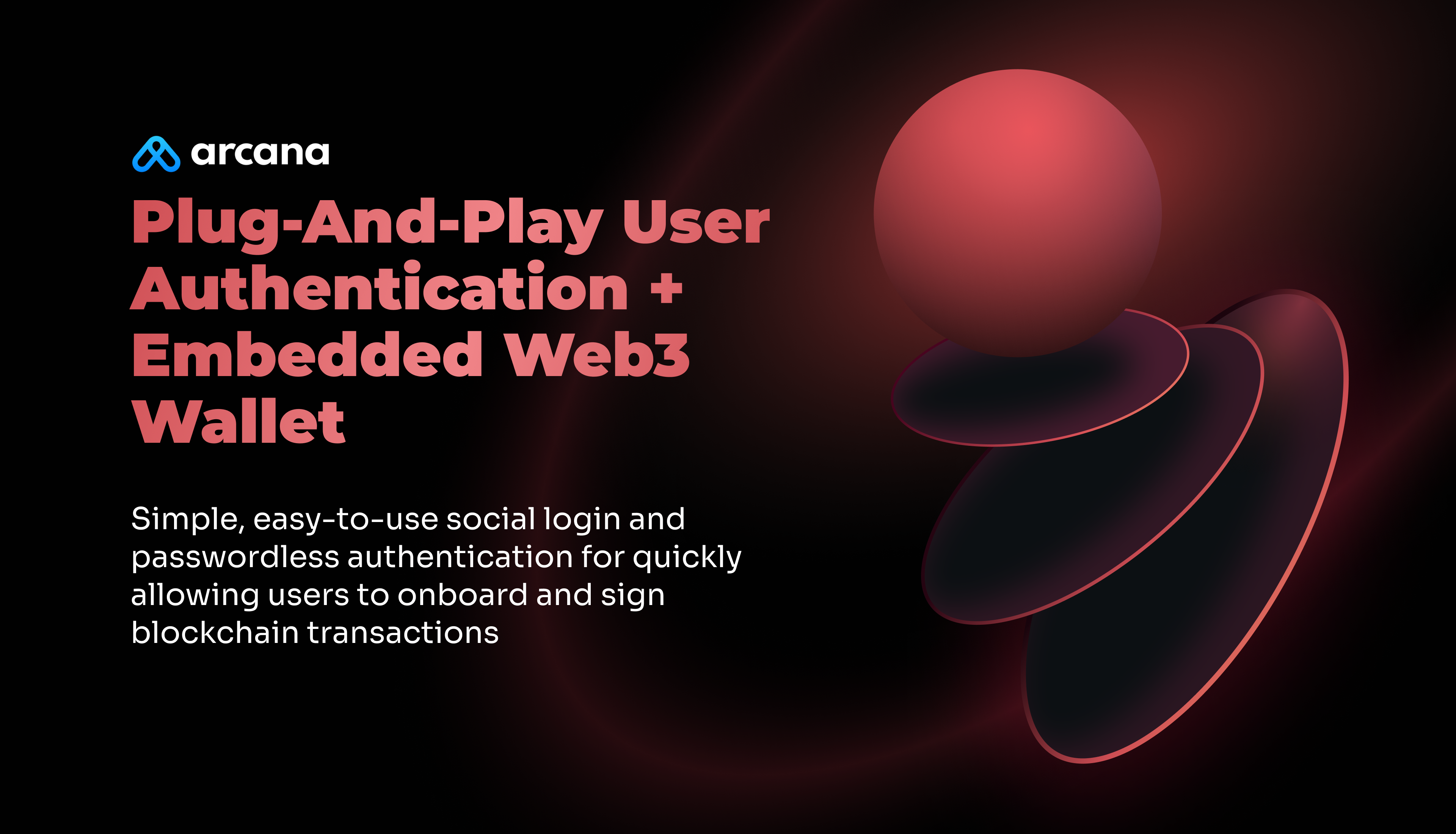Arcana Developer Dashboard allows dApp developers to configure how they choose to integrate and use Arcana SDKs. It is used to tailor the desired dApp user experience for authentication, data privacy, storage access, and monitoring dApp user storage consumption metrics.
⛓️ Register your dApp with Arcana Network and select storage region for dApp user data
🔒 Configure social authentication, passwordless login to onboard dApp users
👛 Specify Storage usage and bandwidth limit per dApp user
⚙️ Configure transaction signing user experience (no UI, popup UI) as per dApp use case
Check out Arcana Network documentation and refer to How to Register and Configure dApp Guide for details.
For any support or integration related queries, contact Arcana support team.
We welcome all contributions to the Arcana Developer Dashboard from the community. Read our contributing guide to learn about our development process, how to propose bug fixes and improvements, and the code of conduct that we expect the participants to adhere to. Refer to the development section of this readme for details on how to build and validate your changes to the Developer Dashboard code before submitting your contributions.
Arcana Developer Dashboard is distributed under the MIT License.
For details see Arcana License.
For local development, start by cloning the repository.
git clone [email protected]:arcana-network/developer-dashboard.git
Move to the project directory.
cd developer-dashboardEnsure you have node version v16 or higher installed. Install project dependencies.
npm installIn the project root, create an .env file by copying the content of .env.example, and filling in the environment variables.
cp .env.example .envStart the local development server.
npm run devRun all linters and formatters.
npm run lintBuild and generate static files for production.
npm run buildPreview the generated site before deploying.
npm run previewIf you'd like to use Docker to setup the dashboard as a service, follow the above quick start steps and then use
make run-localto spin up the service.




